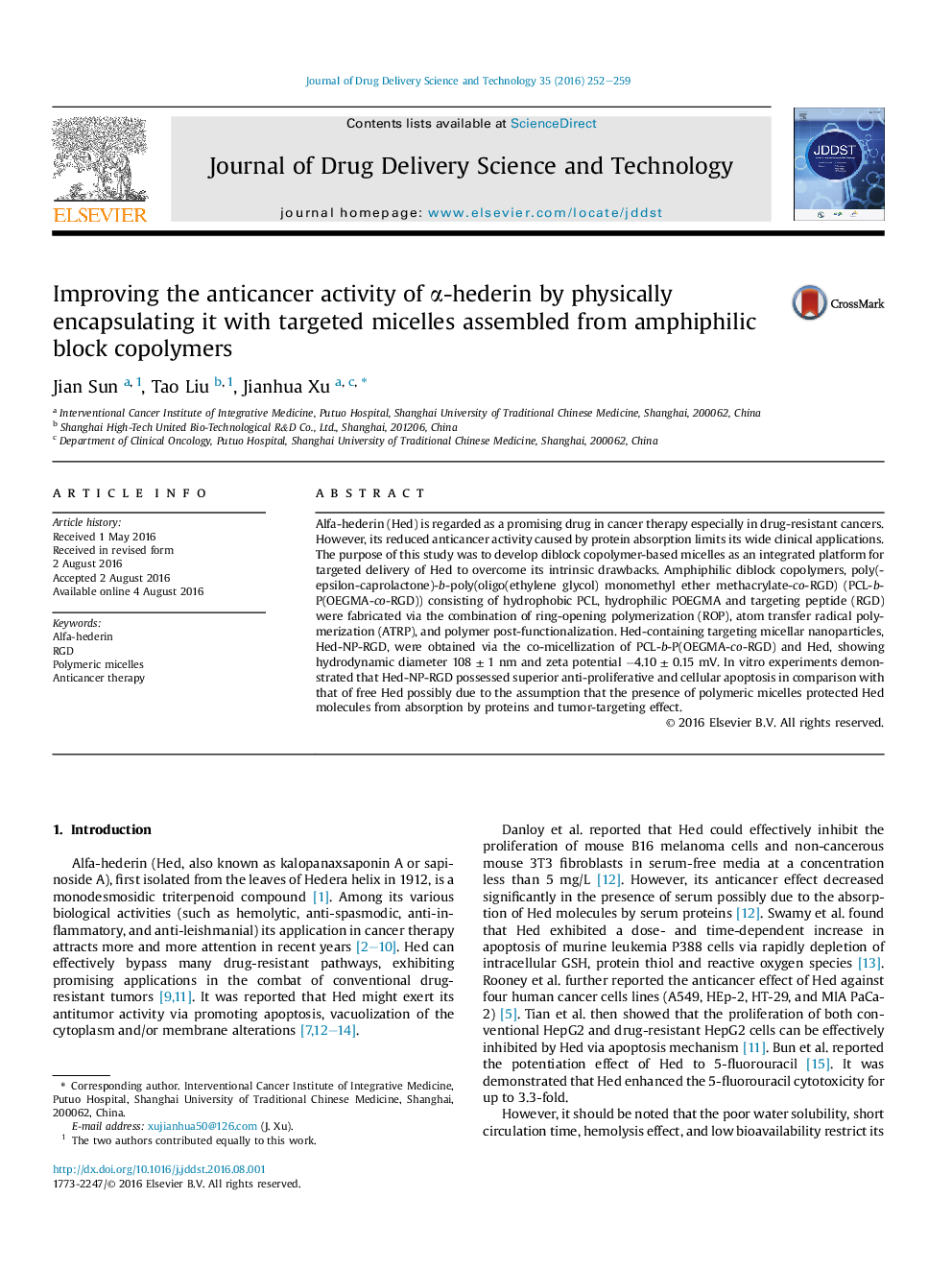| Article ID | Journal | Published Year | Pages | File Type |
|---|---|---|---|---|
| 2483013 | Journal of Drug Delivery Science and Technology | 2016 | 8 Pages |
Alfa-hederin (Hed) is regarded as a promising drug in cancer therapy especially in drug-resistant cancers. However, its reduced anticancer activity caused by protein absorption limits its wide clinical applications. The purpose of this study was to develop diblock copolymer-based micelles as an integrated platform for targeted delivery of Hed to overcome its intrinsic drawbacks. Amphiphilic diblock copolymers, poly(epsilon-caprolactone)-b-poly(oligo(ethylene glycol) monomethyl ether methacrylate-co-RGD) (PCL-b-P(OEGMA-co-RGD)) consisting of hydrophobic PCL, hydrophilic POEGMA and targeting peptide (RGD) were fabricated via the combination of ring-opening polymerization (ROP), atom transfer radical polymerization (ATRP), and polymer post-functionalization. Hed-containing targeting micellar nanoparticles, Hed-NP-RGD, were obtained via the co-micellization of PCL-b-P(OEGMA-co-RGD) and Hed, showing hydrodynamic diameter 108 ± 1 nm and zeta potential −4.10 ± 0.15 mV. In vitro experiments demonstrated that Hed-NP-RGD possessed superior anti-proliferative and cellular apoptosis in comparison with that of free Hed possibly due to the assumption that the presence of polymeric micelles protected Hed molecules from absorption by proteins and tumor-targeting effect.
Graphical abstractThe anticancer activity of alfa-hederin can be effectively improved by physically encapsulating it with polymeric micelles by circumventing the absorption by proteins.Figure optionsDownload full-size imageDownload as PowerPoint slide
